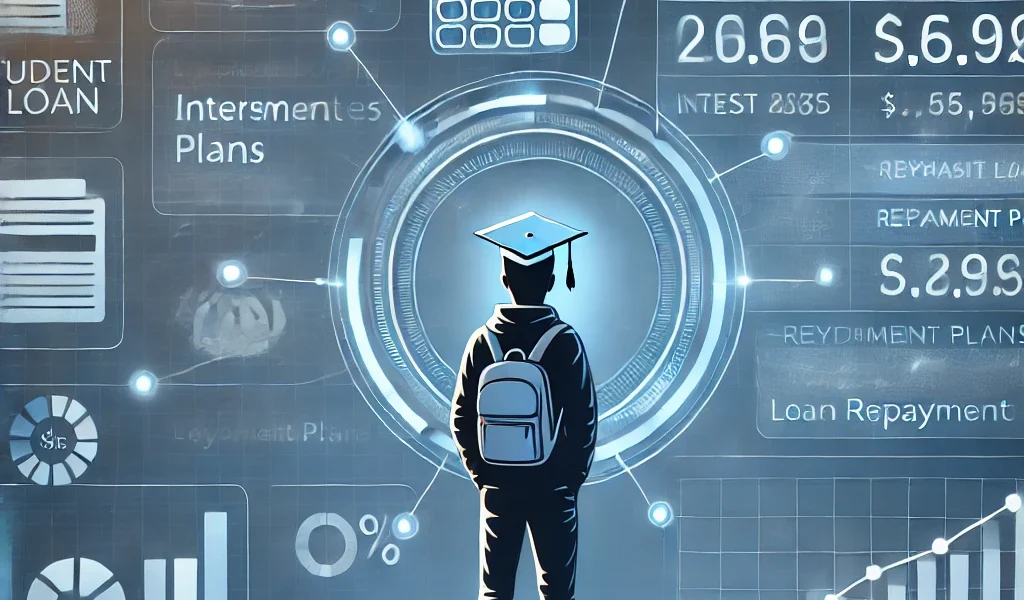Pursuing higher education can be financially challenging, and student loans serve as a critical financial aid tool for many students. Choosing the right student loan provider is essential to ensure affordable interest rates, flexible repayment options, and added benefits. In this guide, we compare the best student loan providers in 2025, their interest rates, repayment plans, and benefits to help you make an informed decision.
1. Key Factors to Consider When Choosing a Student Loan Provider
Before diving into the best student loan providers, it’s important to understand the factors that should influence your decision:
- Interest Rates: Lower interest rates reduce the total repayment amount.
- Loan Repayment Flexibility: Grace periods, deferment options, and flexible repayment plans.
- Loan Amount & Coverage: Does the loan cover tuition, books, and living expenses?
- Eligibility Criteria: Minimum credit score, income requirements, and co-signer policies.
- Additional Benefits: Discounts for auto-pay, rewards for on-time payments, and loan forgiveness options.
2. Top Student Loan Providers in 2025
A. Federal Student Loans (Best for Low Interest Rates and Repayment Flexibility)
Federal student loans are often the first choice for students due to their lower interest rates and borrower-friendly repayment plans.
Interest Rates (2025):
- Undergraduate Direct Loans: 4.99% (fixed)
- Graduate Direct Loans: 6.54% (fixed)
- PLUS Loans (for parents and graduate students): 7.54% (fixed)
Repayment Options:
- Income-Driven Repayment (IDR) Plans
- Standard 10-Year Repayment
- Public Service Loan Forgiveness (PSLF) for eligible careers
Benefits:
- No credit check required (except for PLUS loans)
- Loan forgiveness programs available
- Interest subsidies for qualifying borrowers
B. Sallie Mae (Best for Flexible Repayment Options)
Sallie Mae is a top private student loan provider known for its flexibility in repayment and competitive rates.
Interest Rates:
- Variable: Starting from 5.49% APR
- Fixed: Starting from 4.25% APR
Repayment Options:
- Deferred repayment (start paying after graduation)
- Interest-only payments while in school
- Fixed monthly payments while in school
Benefits:
- No origination fees
- Cosigner release option available after 12 months
- Covers full education costs, including tuition, books, and housing
C. Discover Student Loans (Best for No Fees and Cash Rewards)
Discover provides student loans with no fees and offers a cash reward for good grades.
Interest Rates:
- Variable: Starting from 5.49% APR
- Fixed: Starting from 4.49% APR
Repayment Options:
- In-school interest-only payments
- Fixed monthly payments
- Full deferment until graduation
Benefits:
- 0% origination, prepayment, and late fees
- 1% cash reward for achieving a GPA of 3.0 or higher
- Cosigner release option available
D. SoFi (Best for No Fees and Member Benefits)
SoFi offers competitive private student loans with extra perks for borrowers.
Interest Rates:
- Variable: Starting from 5.24% APR
- Fixed: Starting from 4.74% APR
Repayment Options:
- Immediate full payments
- Interest-only payments
- Deferred payments
Benefits:
- No origination fees, late fees, or prepayment penalties
- Career coaching and financial planning tools
- Unemployment protection (temporary deferment if unemployed)
E. Earnest (Best for Customizable Repayment Plans)
Earnest allows borrowers to tailor their loan repayment to fit their financial situation.
Interest Rates:
- Variable: Starting from 4.99% APR
- Fixed: Starting from 4.29% APR
Repayment Options:
- Choose your monthly payment amount
- Ability to skip one payment per year
- Flexible terms between 5 to 15 years
Benefits:
- No fees (origination, late payment, or prepayment)
- Cosigner release available
- Biweekly payment options to save on interest
3. Federal vs. Private Student Loans: Which One Should You Choose?
| Feature | Federal Student Loans | Private Student Loans |
|---|---|---|
| Interest Rates | Fixed, lower rates | Variable and fixed rates |
| Credit Check | Not required (except PLUS loans) | Required |
| Loan Forgiveness | Available in certain cases | Not available |
| Repayment Plans | Flexible income-driven plans | Standard plans |
| Co-signer Needed? | No | Often required |
| Fees | No origination fees | Some lenders charge fees |
Which One to Choose?
- If you qualify for federal loans, they should be your first choice due to lower interest rates and better repayment flexibility.
- If you need additional funds, private student loans can help, but look for low-interest rates and flexible repayment options.
4. Tips for Managing Student Loan Debt
- Start Repayments Early: Making small payments while in school can reduce overall interest costs.
- Explore Loan Forgiveness Programs: If you work in public service, you may qualify for loan forgiveness.
- Set Up Auto-Pay: Many lenders offer interest rate discounts for automatic payments.
- Refinance When Possible: If you have a good credit score, refinancing can lower your interest rate.
- Avoid Default: Missing payments can hurt your credit score and lead to financial penalties.
Conclusion
Choosing the best student loan provider depends on your financial situation, repayment preferences, and eligibility. Federal student loans should be the primary choice for most students due to their lower interest rates and repayment flexibility. However, private loans from lenders like Sallie Mae, SoFi, Discover, and Earnest can help bridge the funding gap with competitive rates and added benefits.
Before selecting a loan, compare interest rates, repayment terms, and lender benefits to make an informed decision that aligns with your financial future.
Disclaimer: This article is for informational purposes only and does not constitute financial advice. Consult a certified financial expert before making any loan-related decisions.



